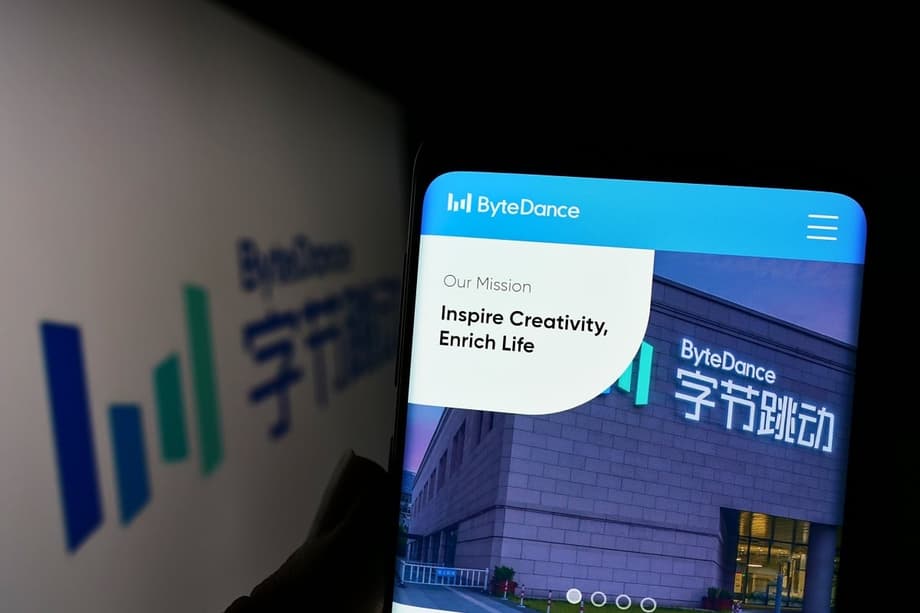ByteDance targets developers with a cut price AI coding agent
ByteDance has moved to undercut rivals in China’s fast growing market for AI developer tools. Its cloud arm, Volcano Engine, introduced Doubao Seed Code, an AI coding agent priced at 9.9 yuan (about US$1.30) for the first month, with a standard monthly fee of 40 yuan after the promotion. The rollout coincided with Singles Day (November 11), a shopping event that routinely drives mass trials for new digital services. ByteDance says the model reached a state of the art mark on the SWE Bench Verified test, putting its quality in the same tier as leading systems such as Claude Sonnet. That claim, if borne out in everyday use, signals an aggressive push to win developer mindshare in China.
- ByteDance targets developers with a cut price AI coding agent
- What does Doubao Seed Code actually do
- A fierce home market battle on price and product
- Global policy casts a long shadow on AI tools
- Privacy and data governance around Trae and code agents
- Who will gain the most from a 9.9 yuan starting price
- What to watch next
- The Essentials
The move fits a broader acceleration of ByteDance’s AI strategy. Volcano Engine president Tan Dai told a corporate audience in October that usage of the company’s Doubao chatbot doubled over the prior six months, a sign that consumer familiarity is turning into daily habit. Behind the scenes, ByteDance has built a stack that spans large language models, vision systems, speech tools, creative generators, and a growing developer platform. The company is leaning on its strength in data infrastructure and distribution across popular apps to seed adoption, and it is pairing that with sharp pricing aimed at students, hobbyists, and small teams.
What does Doubao Seed Code actually do
Coding agents go beyond the classic autocomplete that suggests the next line in an editor. A modern agent can scan project context, propose a plan, write and edit code across many files, run tests, and then iterate when new errors appear. The goal is to move tasks from a ticket or prompt to a working change request with minimal back and forth. ByteDance positions Doubao Seed Code as an agent in this sense, powered by its Doubao family of models and backed by Volcano Engine’s cloud services.
According to the company, the tool aims to help with code generation, bug fixing, test writing, and routine refactoring. The low entry price reduces friction for first time users who want to try agent style workflows in familiar editors. Launching during Singles Day is a calculated bet that broad consumer traffic can translate into a wave of developer trials.
Benchmarks and quality claims
SWE Bench Verified is a research benchmark that tests whether AI systems can resolve real issues drawn from open source repositories. To earn credit, a system must read the code, make changes, and pass test suites that confirm the fix. A strong score points to capabilities in tool use and multi step reasoning, two skills that matter for agents working across complex codebases.
No benchmark can capture everything that defines daily productivity. Latency, smooth integration with editors, support for private repositories, and the ability to handle very large context windows often decide whether a tool sticks in a team. ByteDance is addressing the editor experience with Trae, an AI powered IDE that bundles model access and workflow features to keep developers inside one environment.
A fierce home market battle on price and product
China’s biggest platforms are racing to define the coding stack powered by AI. Tencent is pushing agent style tools that support marketing, coding, and workflow automation for businesses. Alibaba is investing in its own developer assistants and cloud platforms for AI. Startups such as Cursor have gained traction by focusing on product experience and context handling rather than training their own giant models. The market is dense with capital, talent, and weekly releases.
ByteDance brings two structural advantages to this contest. First, it has distribution. Apps like Douyin give the company a channel to introduce new AI utilities to millions of creators and small businesses. Second, it has a broad stack under Volcano Engine, including Doubao models and the Seed family for coding, vision language, speech, and creative tasks. A 40 yuan monthly list price for a capable agent undercuts many rivals, while a 9.9 yuan first month could establish habit among new users who have never paid for AI coding help.
Global policy casts a long shadow on AI tools
The debut also highlights an uneven global market for AI services. This year, Anthropic updated its restrictions to block access by subsidiaries of Chinese firms. That limited the availability of certain Western AI systems for teams tied to China and underscored the growing split in AI infrastructure between regions. Chip export rules continue to shape access to compute. Nvidia signaled that H20 accelerator sales in China could proceed under current constraints, a key lever for model training and inference capacity.
ByteDance has the resources and momentum to keep investing in this environment. The company’s revenue growth has put it near or above some global peers in certain quarters, and it is investing across models, custom chip collaborations, and an expanding set of generative products. Coding tools sit at the intersection of consumer scale and enterprise utility, making the category a logical focus for a company that already runs a major cloud platform.
Privacy and data governance around Trae and code agents
Security researchers who examined Trae, ByteDance’s AI enabled IDE, describe a far reaching telemetry system that phones home on a regular schedule. Their technical reports point to persistent device identifiers, frequent network calls to multiple endpoints, and collection of file content via local channels even when the editor is idle. Trae is built on the Visual Studio Code framework, and the behavior of both first party and third party modules shapes what data moves.
ByteDance has responded with clarifications and product changes. The company has said that the telemetry switch in settings controls data collected by Visual Studio Code and participating extensions, but that some third party modules are outside that control. ByteDance added notices to the interface to explain which components are covered and said a dedicated privacy mode is on the roadmap. In an update to users, a ByteDance support representative explained the limits of the telemetry toggle and the steps underway.
“The telemetry toggle only controls data collected via VS Code and participating third party extensions. Some third party extensions might not respect this setting.”
Organizations that handle sensitive intellectual property will weigh these concerns carefully. The safest way to evaluate any AI coding tool is inside a controlled environment with strict network egress rules, narrow repository scopes, and clear data retention policies. Some teams choose local models for autocomplete and basic refactoring that never send code to external servers, trading a degree of capability for higher control and compliance.
Who will gain the most from a 9.9 yuan starting price
The launch targets users who have been priced out of premium assistants. Students, coding bootcamp learners, freelancers, and small companies can now trial an agent on real tasks such as writing unit tests, porting functions between languages, or scaffolding an API wrapper. If the agent supports both Chinese and English prompts and plugs into popular editors cleanly, word of mouth across universities and indie teams could drive rapid adoption.
Productivity gains depend on workflow and experience. A study by the AI research nonprofit METR found that coding assistants did not always improve output, and results varied with developer skill and task complexity. Teams that see the best results tend to set clear rules for code review, connect the agent to test suites and CI, and define how sensitive code is handled to avoid accidental data exposure.
What to watch next
Quality at scale will hinge on context length, ability to reason across entire projects, and smooth links to Git, issue trackers, and continuous integration. Updates that tighten these loops will say more about real world value than a new benchmark score alone. Another open question is market reach. Many developers outside China want low cost agents, yet compliance and data residency shape what ByteDance can ship abroad.
Competitive responses will likely arrive. Watch for Tencent and Alibaba to adjust pricing or bundle agents into broader cloud offers. Startups may push harder on latency, local inference, and editor polish. The race is moving toward reliable end to end automation for common coding tasks, at a price that works for students and enterprises alike.
The Essentials
- Volcano Engine launched Doubao Seed Code with a 9.9 yuan first month and 40 yuan monthly list price.
- ByteDance says the model reached state of the art on the SWE Bench Verified test, comparable to Claude Sonnet.
- The release was timed to Singles Day to drive mass trials among developers.
- Doubao chatbot usage doubled in the last six months, according to Volcano Engine president Tan Dai.
- Tencent, Alibaba, and startups like Cursor are intensifying the AI coding contest in China.
- Anthropic restricted access for subsidiaries of Chinese firms, while Nvidia signaled H20 chip sales in China could proceed under current rules.
- Security researchers flagged Trae IDE’s telemetry practices; ByteDance said some third party extensions ignore the telemetry toggle and a privacy mode is planned.
- Low pricing targets students and small teams, while enterprises will weigh privacy, integration, and governance before adopting agents widely.












